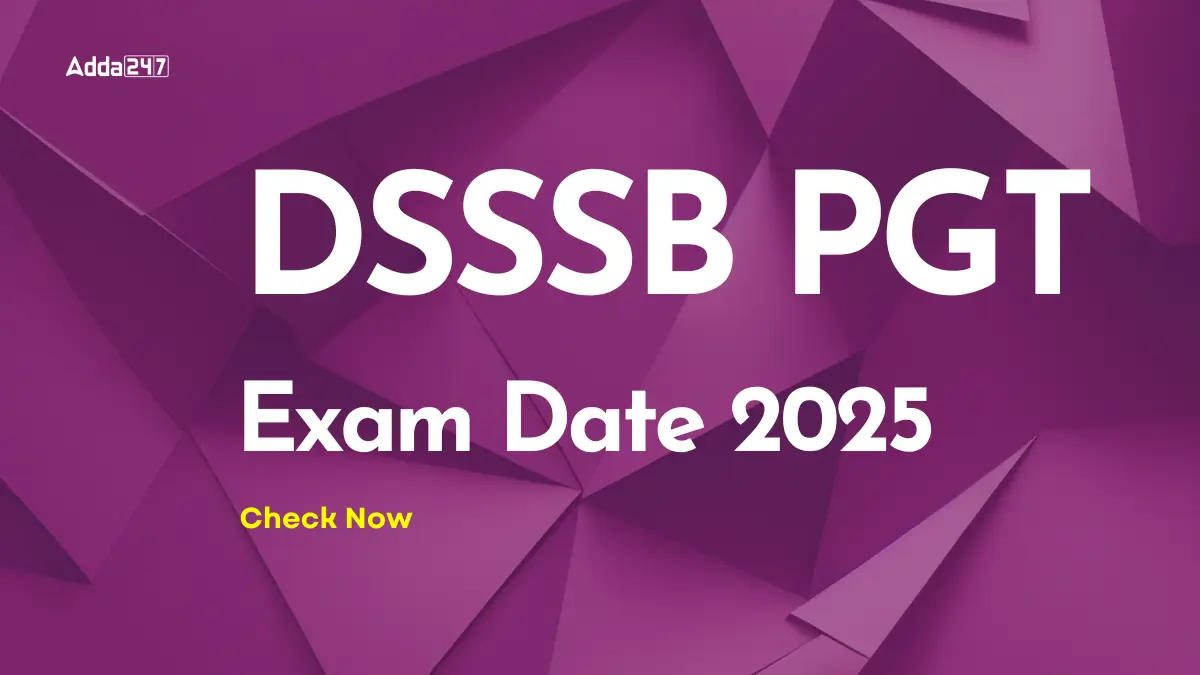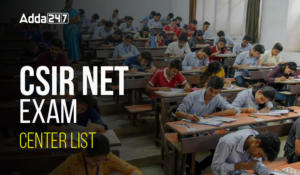Table of Contents
The Delhi Subordinate Services Selection Board (DSSSB) has officially released the DSSSB PGT Exam Date 2025 for multiple teaching posts. Candidates who applied under Advt Nos. 05/24, 07/23, and 02/23 with various post codes must now get ready, as the written exams are scheduled to be conducted between 7 July and 4 August 2025. The PGT exams will be held in two shifts each day- Shift 1 from 9:00 AM to 12:00 PM and Shift 2 from 2:00 PM to 5:00 PM. This article provides a detailed overview of the DSSSB PGT Exam 2025 dates, shift timings, schedule, and admit card updates to help candidates stay prepared.
DSSSB PGT Exam Date 2025 Released
DSSSB has confirmed the PGT exam dates for several subjects through its latest notification. The exam will be conducted across various days and shifts between 7 July and 4 August 2025. Candidates who have applied for Post Codes 16/24, 813/23, 19/24, 804/23, 805/23, 807/23, 808/23, 812/23, 814/23, 810/23, 806/23, 811/23, and 69/23 must check the detailed exam schedule to ensure they appear on the correct date and time. It’s crucial for all candidates to regularly visit the official DSSSB website for updates regarding their exact exam date, shift, and admit card release.
DSSSB PGT Exam Date 2025 Notice
DSSSB PGT Exam Schedule 2025
The DSSSB PGT Exam 2025 will be conducted in two shifts daily over a nearly a month-long period, starting from 7 July and ending on 4 August 2025. Here’s how the exam timings are structured:
|
DSSSB PGT Exam 2025 Schedule |
|||||
| Date | Shift | Timing | Advt Number | Post Code | Post |
| 7 July 2025 | II | 2 PM to 5 PM | 05/24 | 16/24 | PGT English |
| 11 July 2025 | I | 9 AM to 12 PM | 05/24 | 16/24 | PGT English |
| 13 July 2025 | I | 9 AM to 12 PM | 07/23 | 813/23 | PGT Political Science |
| II | 2 PM to 5 PM | 07/23 | 813/23 | PGT Political Science | |
| 14 July 2025 | I | 9 AM to 12 PM | 07/23 | 813/23 | PGT Political Science |
| II | 2 PM to 5 PM | 07/23 | 813/23 | PGT Political Science | |
| 15 July 2025 | I | 9 AM to 12 PM | 07/23 | 813/23 | PGT Political Science |
| II | 2 PM to 5 PM | 05/24 | 19/24 | PGT Painting | |
| 16 July 2025 | I | 9 AM to 12 PM | 07/23 | 804/23 | PGT Hindi |
| II | 2 PM to 5 PM | 07/23 | 804/23 | PGT Hindi | |
| 17 July 2025 | I | 9 AM to 12 PM | 07/23 | 804/23 | PGT Hindi |
| II | 2 PM to 5 PM | 07/23 | 804/23 | PGT Hindi | |
| 18 July 2025 | I | 9 AM to 12 PM | 07/23 | 805/23 | PGT Maths |
| II | 2 PM to 5 PM | 07/23 | 805/23 | PGT Maths | |
| 19 July 2025 | I | 9 AM to 12 PM | 07/23 | 805/23 | PGT Maths |
| II | 2 PM to 5 PM | 07/23 | 805/23 | PGT Maths | |
| 21 July 2025 | I | 9 AM to 12 PM | 07/23 | 805/23 | PGT Maths |
| II | 2 PM to 5 PM | 07/23 | 807/23 | PGT Chemistry | |
| 22 July 2025 | I | 9 AM to 12 PM | 07/23 | 807/23 | PGT Chemistry |
| II | 2 PM to 5 PM | 07/23 | 807/23 | PGT Chemistry | |
| 23 July 2025 | I | 9 AM to 12 PM | 07/23 | 807/23 | PGT Chemistry |
| II | 2 PM to 5 PM | 07/23 | 808/23 | PGT Biology | |
| 24 July 2025 | I | 9 AM to 12 PM | 07/23 | 808/23 | PGT Biology |
| II | 2 PM to 5 PM | 07/23 | 808/23 | PGT Biology | |
| 25 July 2025 | I | 9 AM to 12 PM | 07/23 | 812/23 | PGT Chemistry |
| II | 2 PM to 5 PM | 07/23 | 808/23 | PGT Biology | |
| 27 July 2025 | II | 2 PM to 5 PM | 07/23 | 814/23 | PGT Sociology |
| 28 July 2025 | I | 9 AM to 12 PM | 07/23 | 810/23 | PGT Commerce |
| II | 2 PM to 5 PM | 07/23 | 810/23 | PGT Commerce | |
| 29 July 2025 | I | 9 AM to 12 PM | 07/23 | 810/23 | PGT Commerce |
| II | 2 PM to 5 PM | 07/23 | 810/23 | PGT Commerce | |
| 30 July 2025 | I | 9 AM to 12 PM | 07/23 | 806/23 | PGT Physics |
| II | 2 PM to 5 PM | 07/23 | 806/23 | PGT Physics | |
DSSSB Age Limit 2025
The DSSSB age limit criteria specify the minimum and maximum age requirements for different posts. Refer to the table below for detailed information.
| Posts | DSSSB Age Limit |
| DSSSB TGT Age Limit | 32 years (40 years for Women) |
| DSSSB PGT Age Limit | 36 years |
| DSSSB PRT Age Limit And Nursery Teacher | 30 years |
DSSSB Preparation Tips 2025
The DSSSB recruitment exam is highly competitive, with lakhs of candidates appearing each year to secure positions in various departments under the Delhi Government. Despite the large number of applicants, the available vacancies are limited. Therefore, only well-prepared candidates can qualify. It is recommended that aspirants start their DSSSB exam preparation at least six months in advance to improve their chances of scoring well and securing a position.
Here are some effective preparation tips for the DSSSB exam:
-
Understand the exam syllabus, pattern, and types of questions thoroughly
-
Regularly revise the topics you have studied
-
Create short and simple notes to aid quick and effective revision
-
Practice with previous years’ question papers and take regular mock tests
-
Use reliable DSSSB preparation books and question banks for targeted study
DSSSB PGT Admit Card 2025
The DSSSB PGT Admit Card 2025 is expected to be released in the last week of June 2025 on the official DSSSB portal. Candidates must download their admit card using their registration number and date of birth. No candidate will be allowed to appear in the exam without a valid admit card. It is advisable to take a printout and carry a valid photo ID to the exam center. The admit card will include the following key details:
- Candidate’s name and roll number
- Exam date and shift
- Reporting time and venue
- Post code and subject applied for
- Exam day instructions




 HTET Exam Date 2025 Out, Check Schedule,...
HTET Exam Date 2025 Out, Check Schedule,...
 CSIR NET Exam Center List 2025, State Wi...
CSIR NET Exam Center List 2025, State Wi...
 APPSC Lecturer and Junior Lecturer Exam ...
APPSC Lecturer and Junior Lecturer Exam ...




